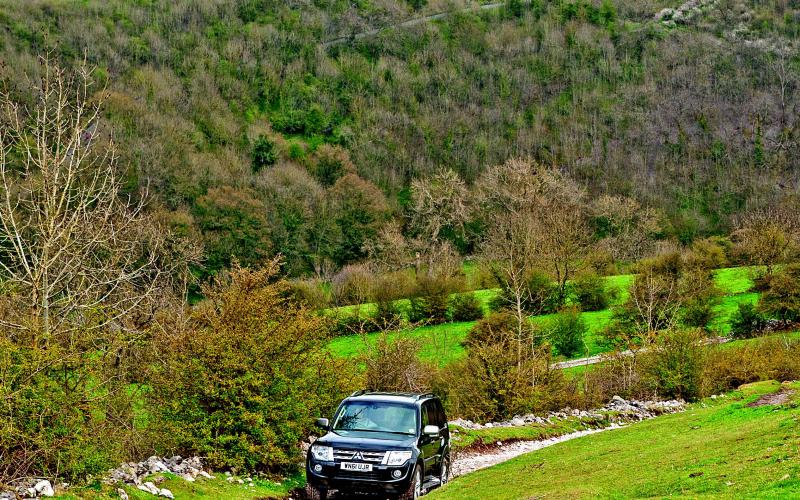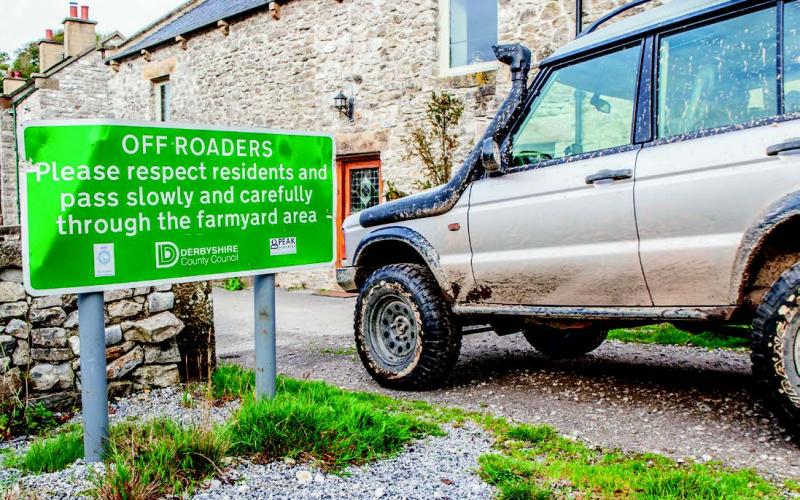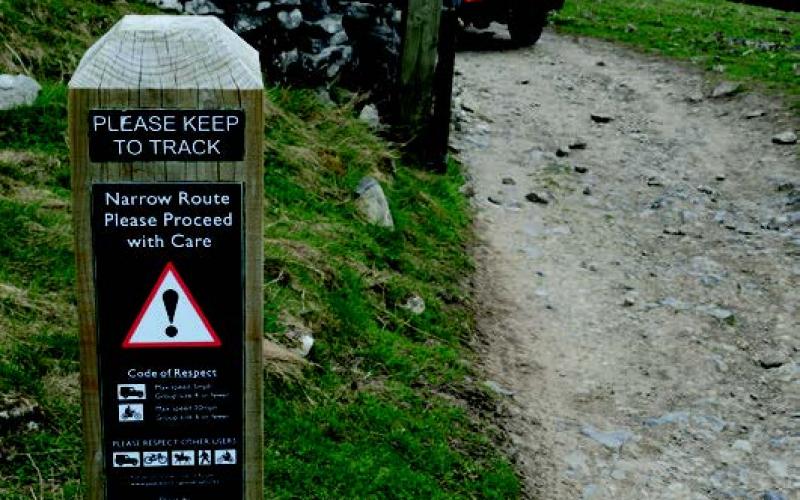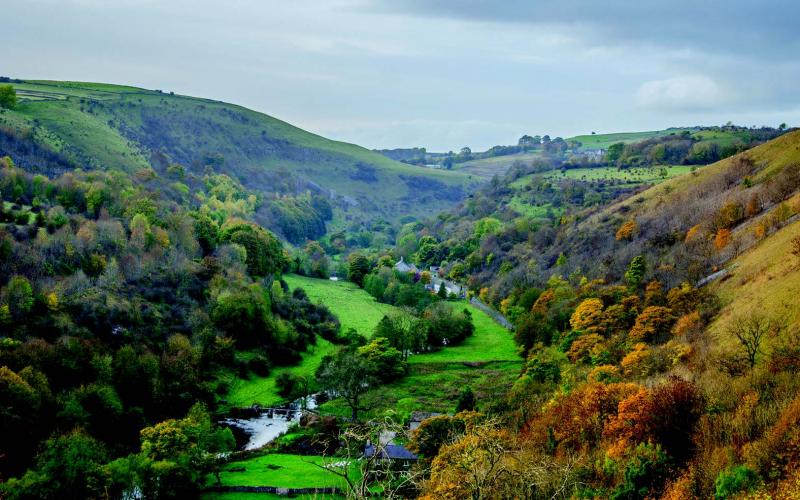Total Victory For Greed And Dishonesty As Brushfield Lane Closes For Good
AFTER A PROLONGED BATTLE to save it from closure, one of Derbyshire’s best remaining green lanes has joined the list of beautiful, sustainable trails in the county to be stripped of their motor vehicle rights for no good reason. Brushfield Lane, a well surfaced, well defined public highway between Upperdale and Priestcliffe, had bridleway status forced upon it following a final planning enquiry late last year
– ending a long and increasingly desperate struggle by pro-freedom campaigners to prevent the axe from falling.
The planning decision which condemned Brushfield Lane was based on complex analysis of historical records, coupled with evidence presented at the enquiry both for and against Derby County Council’s original decision to classify the ancient road as a bridleway. The case illustrated once again the absurdity of the legal situation contrived by the 2006 NERC Act, which penalises motor vehicle users by effectively
requiring them to prove the unprovable in order to prevent lanes from being closed.
Prior to this, unsurfaced roads which had been recorded as highways for generations could be used without issue by traffic such as 4x4s. However one of the various pernicious effects of NERC was to put in place a requirement for these roads to be reclassified as public rights of way (byways, bridleways or footpaths) – along with restrictions which in many cases made it as good as impossible to do this correctly.
When Derbyshire CC was preparing to make the original bridleway order in 2013, it made a request for user evidence which resulted in only three people responding. There are many different reasons why this might be - the request was no doubt adequately publicised as required by law, but this certainly didn’t include advising Total Off Road of it. Even when requests for historical user evidence are disseminated far
and wide, they tend to draw a poor response. Only a tiny proportion of those who’ve driven a lane will hear about the request in the first
place; of these, fewer still will know which actual lane it refers to and still fewer will remember when or how often they drove it. As the
planning inspector handling the Brushfield case said in her report, ‘it can be difficult to accurately recall events that took place some 30 or
so years ago’ – and this is doubly so when at the time those events didn’t seem like anything you would need to remember for the future.
A legal system which requires people to go back half a lifetime for memories of events which were not significant at the time in order to prove what they thought they could take for granted – that a public highway is a public highway – is clearly unfit for purpose. Unless, of course, that purpose is to close as many rights of way as possible through dishonest means.
Green lane users are becoming increasingly certain that this apparent loading of the dice against their case is no accident. Brushfield Lane was on the Peak District National Park Authority’s list of 36 ‘priority routes’ (or ‘hit list,’ as it is commonly known in green laning circles), and joins the increasing number for which ‘management’ has become no more than a euphemism for ‘closure.’
Supporters of the case against the right of way argued that motor vehicle use amounted to public nuisance; it has been commented that those of them living on or near track will enjoy an increase in the value of their properties as a result of the judgement. Brushfield now joins Roych Clough, Chapel Gate, Stanage Edge, Washgate and Hagg Side in the ever-growing list of trails in and around the Peak District which have been closed to motor vehicles.
These half dozen between them must have gone together many, many times in the past to make up the bulk of a day’s laning for countless visitors to the area – whose custom is now denied to local businesses.
The bias and dishonesty built into to a law created in 2006 continues to allow the self-interest and politicking of a vocal and well funded minority to flourish, and Brushfield is their latest victim. Their attentions will now move on to the next lanes on their list: for those in Britain who value freedom, meanwhile, its meaning now rings that little bit more hollow.





















